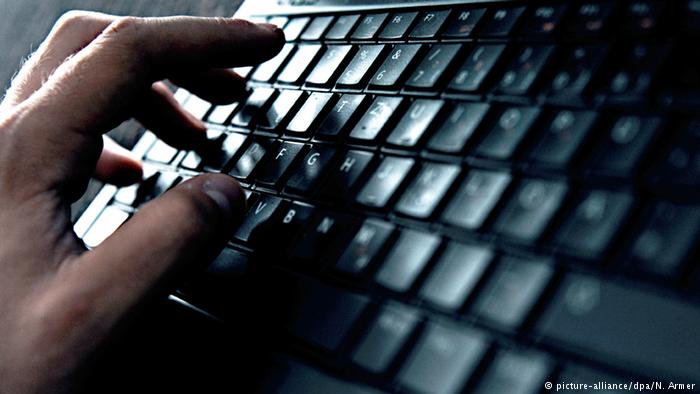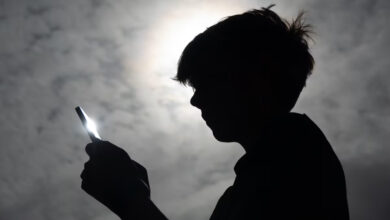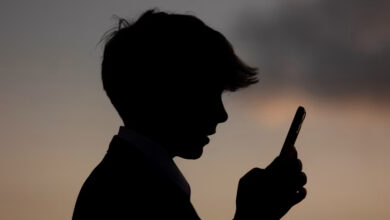
Russia’s media regulators are demanding Twitter and YouTube delete the accounts of “undesired” NGOs. If they don’t, authorities say both sites will be blocked in the country. Will Moscow follow through on its threat?
The Kremlin is having trouble with Mikhail Khodorkovsky again. The nongovernmental organization (NGO) Open Russia, which is financed by the former oil tycoon and vocal opponent of President Vladimir Putin, was put on the country’s official list of “undesirable organizations” in April of this year. Khodorkovsky’s NGO says its aim is to promote democracy in Russia. This week, the Russian government shut down Open Russia’s website. And now it is demanding that the NGO’s presence on social media be deleted as well.
On December 11, Roskomnadzor, the country’s media regulatory agency, called on Twitter and Google-subsidiary YouTube to delete Open Russia’s accounts on their sites. Earlier this year, the Russian Prosecutor General’s Office explained that the NGO’s “activities are aimed at inciting protests and destabilizing the domestic political situation, presenting a threat to Russia’s constitutional foundations and the security of the state.” That was also the justification Roskomnadzor gave both US companies when it informed them they had 24-hours to delete Open Russia’s accounts. The regulatory agency added that if it did not receive confirmation that the accounts had been deleted, both Twitter and YouTube would be blocked throughout Russia.
Deadline passes for Twitter and YouTube
But Twitter and YouTube both let the deadline expire without acting. Neither company replied to DW requests for a statement. Both sites are still accessible in Russia at the moment and experts doubt they can be completely blocked. Sergey Nikitin, an IT expert at the Russian software company Group-IB, told DW that individual accounts are difficult to delete without the cooperation of the host platform. Although it is theoretically possible to do so, he explained, it is extremely complicated and not very practical.
Reporter and blogger Alexandr Plushev is also convinced that Roskomnadzor lacks the capability to block or delete individual accounts. “If they can’t block an individual account then the only option is to take the hard step” of shutting down the entire platform, he said. But Plushev does not believe the government will dare to completely block access to Twitter or YouTube and risk sparking large-scale protests.
VKontakte under control and LinkedIn blocked
So is Roskomnadzor making empty threats? Not entirely. Russian authorities have been trying to exert pressure on and exercise control over social media sites for years. In 2014 Russia’s most popular social media network, VKontakte (VK), was the victim of a hostile takeover. The new owner is Alisher Usmanov, Russia’s fourth richest man and an oligarch with close ties to President Vladimir Putin. He also owns Odnoklassniki (OK.RU), a Russian social network for classmates and old friends. Independent groups are not tolerated on the site and, unlike Twitter and YouTube, Odnoklassniki immediately deleted Open Russia’s account.
Those who do not heed government requests run the risk of being blocked. LinkedIn, the world’s largest career-focused social network, has been blocked in Russia for the last year. Authorities say that is because the Microsoft-owned site violated Russian laws regarding the storage of personal data. Many observers see the case as a government test to find out whether Russian users and Western observers will take such moves lying down, or put up resistance.
LinkedIn was never very popular in Russia, so there was no outcry. But Plushev believes Russian media regulators won’t dare take things with Twitter and YouTube as far as they did with LinkedIn. “I think we are seeing an old Roskomnadzor tactic,” he said, explaining that the regulator is trying to get the companies to give in or at least come to the negotiating table.
Tools there if things get serious
So far, Russia has been reluctant to broadly block the most powerful internet portals. Nevertheless, should authorities actually shut down Twitter and YouTube, citizens could use technical aids to circumvent the move. “Proxy servers, VPNs and other anonymization tools are among them,” said Nikitin.
The Russian government has already limited the use of such tools. But Plushev pointed out that is just a formality. “They have declared about seven VPNs illegal but there are tens of thousand of them to be found online,” he said. “Both the Tor and Opera browsers allow you to get around such blocks.”
To Joerg Forbrig, an expert on Eastern Europe at the German Marshall Fund, there is a connection between the threat of shutting down Twitter and YouTube and Russia’s upcoming March 2018 presidential election. “It has almost become normal procedure that prior to elections in Russia authorities tighten the reins and attempt to control any channels that might be used to mobilize voters,” he told DW.




